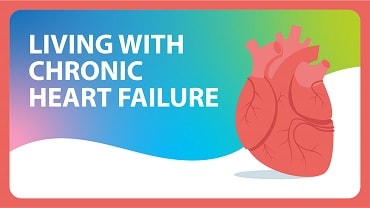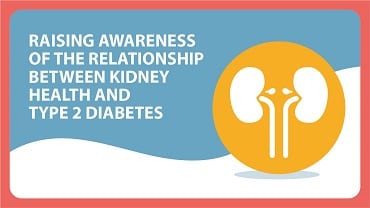支持世界患者安全日

- Health at Bayer
-
Pharmaceuticals
- Treatment Areas
- Innovation & Technologies
- Cell and Gene Therapy
-
Sustainability
- Patient Access Charter
- Leadership Perspective
- Strengthening Healthcare Access
- Moving Non-Communicable Diseases Care Forward
- Ensuring a Sustainable Product Supply
- Delivering Better Cancer Care
-
Empowering Women, Globally
- Boosting Family Planning Usage through Digital Channels
- Capacity building: Addressing Root Causes through Partnerships
- Impact at Scale: The Challenge Initiative
- Promoting Awareness: World Contraception Day (WCD) & the Your Life Campaign
- Providing Accessible and Affordable Contraceptives
- Enabling Family Planning in Humanitarian Settings
- Fighting Neglected Tropical Diseases
- Transparency
- News & Stories
- Personal Health
- Report a Side Effect
- Medical Counterfeits
World Patient Safety Day was established in 2019 by the World Health Organization (WHO), to enhance the global understanding of patient safety, increase public engagement in the safety of health care, promote global actions and reduce patient harm.1
At Bayer, we take great pride in always putting patient safety and well-being first, ahead of everything else. It is at the core of all that we do and more than just an obligation. That’s why we are proud to have supported World Patient Safety Day since the beginning. Over the years, we have developed various tools and supportive materials to educate and inform the public about patient safety.
Each year, Bayer focused on a different topic related to patient safety:
2022: Healthy Aging – Protecting your Heart and Kidneys
2021: Patient safety in special populations
2020: The importance of open and honest conversations about side effects
Patient safety refers to the prevention of harm to patients during the process of healthcare delivery. It involves measures, practices, and strategies aimed at minimizing the risks of medical errors, injuries, infections, and other adverse events that can occur while receiving medical treatment.
Patient safety encompasses various aspects, including accurate diagnosis, appropriate treatment, proper medication administration, infection control, communication among healthcare providers, and involvement of patients in their own care decisions.
2023: Engaging Patients for Patient Safety
World Patient Safety Day 2023 is being observed on 17 September under the theme "Engaging patients for patient safety", in recognition of the crucial role patients, families and caregivers play in the safety of health care.6

Through the slogan “Elevate the voice of patients!”, WHO calls on all stakeholders to take necessary action to ensure that patients are involved in policy formulation, are represented in governance structures, are engaged in co-designing safety strategies, and are active partners in their own care.6
To us at Bayer, this is not just a one of campaign. Listening to patients’ needs has been a matter of course for years because we consider their preferences to implement tailored, meaningful solutions.
Patient safety involves more than just the quality and safety of medical products. To empower patients to make informed decisions, we strive to provide easy-to-understand information. We understand that informative materials, easily accessible through apps or websites, using simple language with options for alternate formats such as video or visual presentations are crucial for patient understanding and inclusivity, and improves patient commitment and adherence.
At Bayer, we value the feedback of patients as well as working with patients, and appreciate their valuable input, because we have experienced that actively involving patients and their care partners leads to better health outcomes! Co-creation directly with patients helps to provide better, more patient-centered solutions faster.
As part of PSD 2023, we ran a multi-phase project designed to understand patient perspectives on safety concerns, to gain new insights to act on.
In collaboration with a patient organization, we co-created a semi-structured discussion guide for interviews and a short survey.
Patient Interviews
Through the interviews we aimed to gain insights about their experiences in learning about side effects, talking with their doctors about reporting side effects, and general observations on what patient safety means to them.
KEY FINDINGS FROM IN-DEPTH INTERVIEWS
- Overall, there isn’t a cohesive sensibility as to what “patient safety” represents; how communication around medication and side effects happens within medical settings; and how reporting processes function.
- Participants discussed how some patient education material was difficult to understand, suggesting gaps in what information is communicated.
- Patients care about how side effects may impact them whether during their routine treatment plan, adjusting medications, or enrolling in a clinical trial. They like having as much information as possible through a wide variety of different formats in plain language so that they can go back and access materials throughout their patient journey.
- Patient safety should be a topic of priority in helping patients understand how certain information is shared and the importance of open conversations around side effects.
Key message: Using non-medical language and simplified explanations can enhance patient understanding and inclusivity!

Patient Survey
The survey was designed to gather patient insights regarding patient safety and overall engagement, and was centered around questions of information-finding, definitions of patient safety and what it means for patient safety to be considered across conversations with doctors, patient engagement, and clinical trials.
KEY FINDINGS FROM THE SURVEY
- When it comes to patient safety, there seems to be a lack of clear information as to what defines patient safety as well as how to understand what safety means in the context of trying a new treatment, participating in a clinical trial, or making sense of information received at the doctor’s office or hospital. Even though doctors are trusted, there may still be frustration around doctors using technical medical terminology or not providing adequate explanatory materials during conversations. Adapting language to reach a wide variety of patients and care partners will help people comprehend the different facets of patient safety in a way that will empower them.
- Patients want to be involved in their care, and they want patients to participate in the creation of materials that will be used to educate people about the safety of any new medications in a way that is simple for non-medical professionals to understand. Keeping patients involved and letting them know what patient safety is, as well as why it is important and how to discuss it, are aspects of engagement that survey participants mentioned as well. Engagement depends on trust, based on responses, so working with patients on drafting materials could foster both trust and further engagement.
Key message: Patients are open to being involved in initiatives. Patient input through surveys and involving patients early in the development of educational materials ensure their understandability and relevance and make them more patient-centered.

Together, we can ensure a safer healthcare journey for all patients!
Patient engagement for patient safety refers to involving patients in their own healthcare processes to enhance safety measures and outcomes. It involves actively involving patients in decisions about their care, encouraging them to communicate concerns, ask questions, and provide input on their treatment plans. This collaboration helps to identify potential risks, prevent errors, and improve overall healthcare quality by incorporating patients as key partners in the safety of their own care.
- Health at Bayer
-
Pharmaceuticals
- Treatment Areas
- Innovation & Technologies
- Cell and Gene Therapy
-
Sustainability
- Patient Access Charter
- Leadership Perspective
- Strengthening Healthcare Access
- Moving Non-Communicable Diseases Care Forward
- Ensuring a Sustainable Product Supply
- Delivering Better Cancer Care
-
Empowering Women, Globally
- Boosting Family Planning Usage through Digital Channels
- Capacity building: Addressing Root Causes through Partnerships
- Impact at Scale: The Challenge Initiative
- Promoting Awareness: World Contraception Day (WCD) & the Your Life Campaign
- Providing Accessible and Affordable Contraceptives
- Enabling Family Planning in Humanitarian Settings
- Fighting Neglected Tropical Diseases
- Transparency
- News & Stories
- Personal Health
- Report a Side Effect
- Medical Counterfeits
世界患者安全日由世界卫生组织 (WHO) 于 2019 年设立,旨在提高全球对患者安全的认识,增加公众对医疗安全的参与程度,推动全球采取行动,减少患者伤害。1
在拜耳,我们为始终将患者安全和福祉放在首位而感到无比自豪。这是我们所做一切的核心,而不仅仅是一项义务。这就是我们从一开始就以支持世界患者安全日感到自豪的原因。多年来,我们开发了各种工具,编制了各种支持材料,以教育和告知公众患者安全。
今年,拜耳再次开展各种活动,以提高全球患者安全日的认识。例如,在德国,该团队分享了服用多种药物治疗慢性心力衰竭时如何保持安全的信息图表。这与 2022 年世界患者安全日的官方主题——“用药安全”相一致,2022 年世界患者安全日的口号是“避免用药伤害”。1
全球范围来看,我们的活动将侧重于健康老龄化,这是一个高度相关的主题,也是一个对拜耳至关重要的主题。
单击此处阅读 Michael Devoy 和 Alexander Biedermann 关于老龄化人口在社会和医疗层面的全球挑战相关文章。
2022 年患者安全日
2022 健康老龄化
随着年龄的增长,患上心力衰竭或慢性肾脏疾病等疾病的几率增加。2,3 已知多种导致慢性心脏和肾脏疾病的风险因素,可以避免或至少最小化。4,5 人们无法始终保护自己不生病。然而,如果这些风险因素得到很好的管理,并采取预防性的生活方式措施,未来罹患疾病的可能性就会降低。4
我们大多数人都知道应该采取哪些措施来引领健康的生活——比如健康饮食和定期运动。然而,在我们年轻时,很难意识到这样做的重要性。
请单击下方观看以下简短视频,其中介绍了如何随着年龄增长保持健康的技巧:
近几十年来的健康老龄化情况
逆转老龄化
健康饮食的重要性
体育锻炼的重要性
戒烟与心理健康的重要性
[要查看带有您喜欢的语言字幕的视频,请点击 YouTube 设置中的齿轮图标,选择“字幕/CC”,从列表中选择您要使用的语言,字幕将出现在视频上.]
保护您的心脏和肾脏
我们最近进行了一项调查,邀请 50 例心力衰竭和慢性肾脏疾病患者分享关于健康老龄化的意见,以及病友们如何管理自身病况的建议。下面的引用是他们给出的建议:
请单击此处收听我们为世界肾脏日制作的播客,其重点讲述了早期诊断的价值以及医疗保健提供者与糖尿病肾病患者之间的沟通障碍。(在打开的网页上,请向下滚动至“了解世界肾脏日支持者的更多信息”部分,选择“拜耳”,然后单击播放按钮。)
管理现有疾病,例如糖尿病和高血压,对于维持心脏和肾脏的健康和功能也至关重要。4,5 您知道患有心力衰竭会增加患上慢性肾脏疾病的可能性——并且反之亦然吗?4,5
为了帮助提高人们对健康老龄化重要性的意识,拜耳邀请了两位睿智的老朋友 H 夫人和 K 先生,他们虽然上了年纪,但依然保持健康。请单击下面的故事,了解他们为年轻的心脏和肾脏提供的关于如何健康老龄化和预防疾病的重要指导。
故事包含以下四章:
第 1 章:我们在身体中做什么?为什么我们很重要?
第 2 章:当我们变老时会发生什么?
第 3 章:我们如何保持健康呢?
第 4 章:如果我们真的生病了,该怎么办?
我们希望您在探索为 2022 年患者安全日编制的材料时享受其中的乐趣,并且希望它们可以帮助您过上健康快乐的生活!
参考文献
- World Health Organization. World Patient Safety Day 2022. Available from: https://www.who.int/news-room/events/detail/2022/09/17/default-calendar/world-patient-safety-day-2022. Last accessed: May 2022.
- Strait JB, Lakatta EG. Aging-associated cardiovascular changes and their relationship to heart failure. Heart Fail Clin. 2012 Jan; 8(1):143-164.
- Prakash S, O’Hare AM. Interaction of Aging and CKD. Semin Nephrol. 2009 Sep; 29(5):497-503.
- National Institute of Diabetes and Digestive and Kidney Diseases. Heart & Kidney Disease. Available from: https://www.niddk.nih.gov/health-information/kidney-disease/heart-disease. Last accessed: May 2022.
- National Kidney Foundation. Heart Failure and CKD: What you need to know. Available from: https://www.kidney.org/sites/default/files/Heart_Failure_and_CKD_2018.pdf. Last accessed: May 2022
- https://www.who.int/news-room/events/detail/2023/09/17/default-calendar/world-patient-safety-day-2023--engaging-patients-for-patient-safety
Job codes: MA-OTH-ALL-0046-01 and MA-OTH-ALL-0049-01
Date of preparation: August 2022






































































